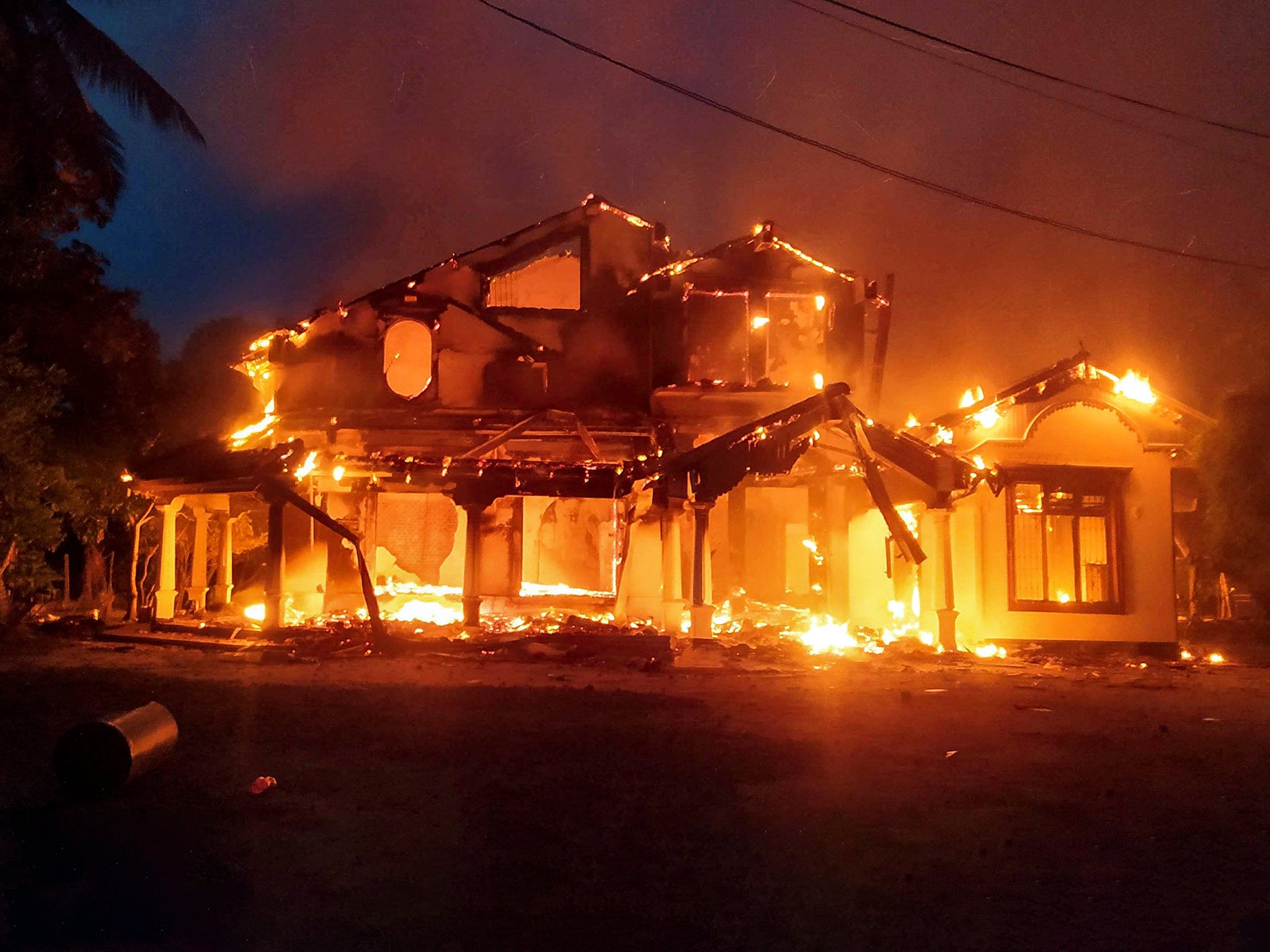Sri Lanka: Ministers’ homes set ablaze as violent clashes break out amid PM’s resignation
Protesters are defying a countrywide curfew Tuesday in Sri Lanka, a day after widespread clashes that led to the prime minister’s resignation

Your support helps us to tell the story
From reproductive rights to climate change to Big Tech, The Independent is on the ground when the story is developing. Whether it's investigating the financials of Elon Musk's pro-Trump PAC or producing our latest documentary, 'The A Word', which shines a light on the American women fighting for reproductive rights, we know how important it is to parse out the facts from the messaging.
At such a critical moment in US history, we need reporters on the ground. Your donation allows us to keep sending journalists to speak to both sides of the story.
The Independent is trusted by Americans across the entire political spectrum. And unlike many other quality news outlets, we choose not to lock Americans out of our reporting and analysis with paywalls. We believe quality journalism should be available to everyone, paid for by those who can afford it.
Your support makes all the difference.Hundreds of protesters continued to chant slogans against the Sri Lankan government on Tuesday, defying a nationwide curfew a day after violent clashes in the crisis-hit nation.
Protesters set ablaze homes and businesses belonging to ruling party lawmakers and regional politicians. Seven people died in the unrest and more than 200 were injured, local police said.
Violent clashes saw the resignation of the prime minister Mahinda Rajapaksa who is blamed, along with his brother, the president, for plunging the country into its worst economic crisis in decades.
Imports of everything from milk to fuel have fallen, resulting in dire food shortages and rolling power cuts. People have been queuing for hours to buy essentials.
Doctors have warned of crippling shortages of life-saving drugs in hospitals, and the government has suspended payments on $70bn in foreign debt due this year alone.
Protesters swarmed the entrance to president Gotabaya Rajapaksa’s office in the capital, Colombo, on Tuesday for the 32nd day to demand that he follow in his brother’s footsteps and quit.
A government decree issued Monday night confirmed the resignation of Mahinda Rajapaksa, the prime minister.
His departure came after violence erupted in front of the Rajapaksas’ offices as his supporters attacked protesters with wooden and iron poles. Authorities swiftly deployed armed troops in many parts of the country and imposed a curfew until Wednesday.
The South Asian island nation has been gripped by protests for more than a month which have spread from the capital to the countryside. It has drawn people from across ethnicities, religions and classes and has even seen a marked revolt from some Rajapaksa supporters, many of whom have spent weeks calling for the two brothers to quit.
The pressure on President Rajapaksa to quit mounts following his brother’s resignation, analysts say, and comes amid the country’s economic decline.
Mr Rajapaksa initially said the crisis wasn’t created by him, blaming global factors like the pandemic battering its tourism industry and the Russia-Ukraine conflict pushing up global oil prices.
But unable to escape the public wrath, both he and his brother have since admitted to mistakes that exacerbated the crisis, including conceding they should have sought an International Monetary Fund bailout sooner.
In March, after citizens had been enduring critical shortages of fuel, cooking gas and medicine for months already, the president reached out to the IMF.
Talks to set up a rescue plan are being held, with progress dependent on negotiations on debt restructuring with creditors. But any long-term plan would take at least six months to get underway.
Additional reporting by agencies
Join our commenting forum
Join thought-provoking conversations, follow other Independent readers and see their replies
0Comments